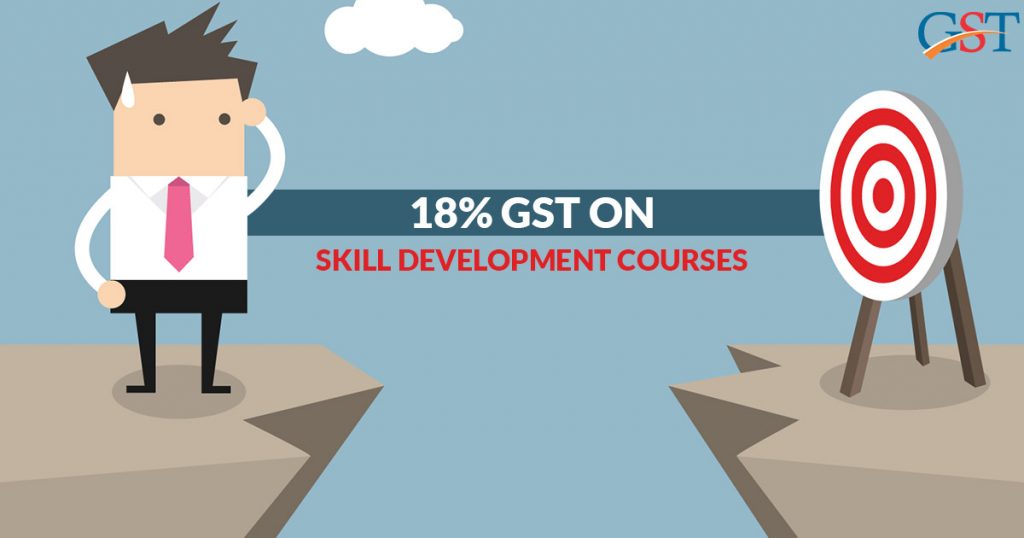
18% GST rate on vocational training courses is lacerating for employees as well as employers who impart training & education to their employees as a part of their Customer Social Responsibility (CRS).
According to experts, the applicability of goods and services tax (GST) on workers’ enrollment for the government’s skill development programme is highly castigated as it demotivates workers and industries as well.
At present, the employers sponsoring their employees for vocational training or individual who get themselves enrolling themselves for such courses which will get the job have to pay 18% GST on the enrollment.
Usually, the Finance Ministry plays the role of benefactor and sponsors the training fees, but many companies also provide funds as an element of their CSR to leverage the skills of their workers’. However, the payment of 18% GST on them is aching for the companies.
Read Also: Goods and Services Tax Applicability on Employees Structure
“Students pay for themselves or by sponsors find 18 per cent GST on training fees back-breaking leading to postponement or cancellation of vocational training. The training provider imparts basic vocational training to under-qualified and unskilled youth to make them employable,” said G A Soman, principal of Don Bosco Training Academy in Mumbai and former chairman of Indian Institute of Welding (IIW).
The fee of professional training goes higher when the students enrolling for them have to pay 18% GST along with the course fee and most of the students are from down and out family so it sums up financial complexity for them. The course fee for a basic steel welding is approx Rs 45,000 per student and the training fee in organised sectors like diamond & textile and unorganised sectors like plumbing ranges between 20,000 and Rs 25,000. The tax applicability on them raises the financial burden on students and their families.
IIW has appealed to the government to nullify GST on skill development courses and put them under the GST exempted category. At present, industries such as diamond processing are also encountering hefty GST onus, particularly at the times when the absorption rate decelerates.
“The industry is paying 18 per cent of GST on all processed diamonds certified by a certifying agency. When these certified diamonds are exported, the exporter gets an input credit which stands lower than the GST paid on certification as buyers do not reimburse taxes. This has resulted into GST accumulation and, therefore, blockage of working capital of diamond processors, we have proposed the government to reduce the GST on diamond certification to 5 per cent,” expressed Colin Shah, Vice Chairman, Gems and Jewellery Export Promotion Council (GJEPC).
Recommended: GST Rate Applicable to Educational & Training Services
Expenses borne by diamond processors on training and skill development are subject to reimbursement. The skill development throughout the diamond industry is tracked and managed by the National Skill Development Council (NSDC) which completely waives off the GST from vocational courses.
The Textile Sector Skill Council (TSC) which was set up as a subgroup of National Skill Development Corporation (NSDC) in the year 2014, has enrolled 147,678 trainees under different programmes brought in by it and has certified 135,391 candidates as well-trained professionals. However, at present, the nation’s economic slowdown has disrupted skill development within a new worker as well as trained employees.
“The aim of the government’s Skill India mission was to create professionals for long term. The slow rate of absorption of skilled workers is a temporary phenomenon which would overcome in six months,” statement made by Rahul Mehta, president of Clothing Manufacturers Association of India (CMAI).
